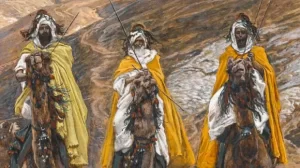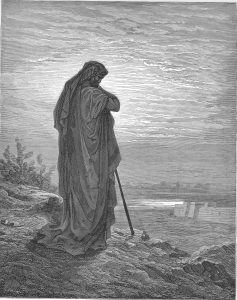 For many of us, our childhood memories of Christmas bring back the images of a crib.
For many of us, our childhood memories of Christmas bring back the images of a crib.
Christmas was indeed the special celebration of the child Jesus lying in a manger.
He was held in the arms of his mother Mary under the admiring gaze of Joseph.
To this simple presentation, a more detailed one was often outlined.
More personages were part of the scene: the shepherds and the Magi. 
The shepherds were often seen bringing sheep to the new-born.
The Magi, known as the three kings, carried more precious gifts of gold, incense, and myrrh. 
Many people would call this a childish representation.
Others would claim that it is all part of a myth.
Some would recognize it as symbolic, evocative…
I would side with this last group – the Nativity scene is truly symbolic and powerfully evocative.
More still, it calls for a deeper interpretation, a search for the hidden meaning…
It even inspires an appropriation of what the personages stand for.
Could it be that there is within each one of us a shepherd?… A Magi?…
Hidden in the depths of ourselves the shepherd –
simple, humble, generous, in contemplation of the amazing reality: God has become one of us, truly so…
Hidden as well within us, the Magi (the Magus, in the singular) –
the wise one, coming from afar, in search of truth and meaning, bent in adoration of the Infant-God…
Both of them, and ourselves, have thus understood something of what is proclaimed in this celebration:
“The Word was made flesh and dwelt among us…” (John 1:14)
Note: Another text is available on a different theme, in French, at: https://image-i-nations.com/la-nativite-du-seigneur-annee-b-2023-2024/
Source: Images: Photos Public Domain Aleteia
 HISTORY OF USE YOUR COMMON SENSE DAY
HISTORY OF USE YOUR COMMON SENSE DAY The role of language professionals
The role of language professionals C’est ce qui s’est produit pour le prophète Amos.
C’est ce qui s’est produit pour le prophète Amos.